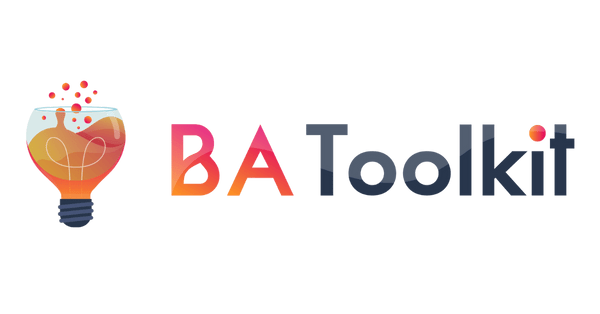About BA-Toolkit
Why the BA Toolkit?
During the execution of Business Analysis tasks, business analysts may use various knowledge, skills, terminology, and attitudes. Using the BABOK as a guide, many business analysts find it not easy to read and challenging to apply in real-life scenarios.
If you agree with this and want access to a visual guide with straightforward, you are in the right place. The platform is currently available in both French and soon in English
But that's not all.
The BA ToolKit was designed by experienced business analysts who felt the need for a pragmatic manual for their profession. It benefits from regular updates, integrating new methods, some of which are not present in BABOK.

The Business Analyst Role
According to BABOK, Business Analysis is the practice of enabling change in an organizational context by defining needs and recommending solutions that deliver value to stakeholders.
Business Analysis involves a deep understanding of an organization's structure, policies, and operations and recommending solutions to achieve its objectives.
What is a Business Analyst, and what is their role?
According to BABOK, a BA is a person who performs business analysis, regardless of their job title or organizational role. Here are some examples: system analyst, requirements analyst, process analyst, product analyst, product owner.
But, in the end, someone who performs the tasks described in the BABOK, including project managers, software developers, testers, etc., also performs business analysis.
Thanks to the company's innovation research and the constant evolution of technological trends, the BA profession is increasingly in demand in the job market. A business analyst is fundamental for product and process innovation and advancing outcomes.

What is IIBA?
The IIBA (International Institute of Business Analysis) is a non-profit association that aims to facilitate the work of professionals working in the field of business analysis.
It was founded in Toronto, Canada, in October 2003 to support the Business Analysis community by:

Explore our selection of eBooks organized into six key categories of business analysis. Whether you are looking to plan your projects, collaborate effectively, manage requirements, define strategies, design solutions or evaluate their performance, we have what you need! Click on each category to explore available resources and find the ideal solution for your needs.

Planning and Monitoring Business Analytics
Need to plan your business analysis activities and track progress like a pro? This category is made for you! Find out how to define your tasks, manage your team's performance and adjust your plan to achieve your goals.

Elicitation and collaboration
Gathering information and collaborating with stakeholders is an art! Here, you will find all the techniques to elicit needs effectively and work hand in hand with your collaborators throughout the project.

Requirements lifecycle management
Managing requirements, from their identification to their validation, is crucial. Learn to maintain consistency and relevance of needs, manage change and ensure that solutions meet expectations.

Strategy analysis
Want to understand the context of your business and define top strategies? This category helps you assess the current situation, develop strategies aligned with your organization's objectives, and make the right decisions.

Requirements analysis and design definition
Transforming needs into concrete solutions, is that your thing? Dive in here to learn how to analyze requirements, design detailed systems, create prototypes, and verify that the solution fully meets stakeholder expectations.

Solution evaluation
Your solution is in place, but is it effective? This category guides you to evaluate the performance of your solution, identify potential improvements and ensure that it provides all the expected value.

